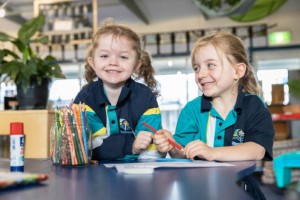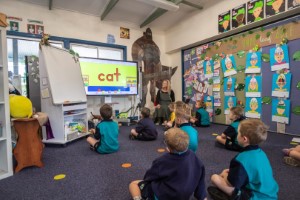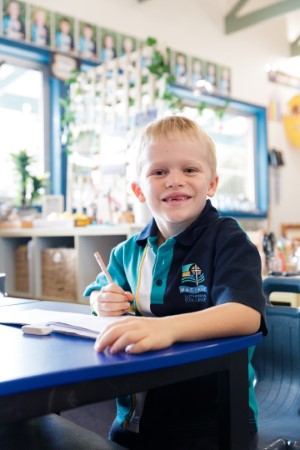Literacy Learning In Prep
Literacy Learning In Prep
Thursday, 19 May 2022 - 12:40pm
By the end of the first year at school, the Australian Curriculum: English expects that most children will be able to:
- Read short, predictable texts with familiar vocabulary and supportive images
- Identify letters of the alphabet and use the sounds represented by most letters
- Listen for rhyme, letter patterns, and sounds in words
- Describe their likes and dislikes of familiar texts, objects, characters, and events
- Communicate clearly and retell experiences with peers and known adults
- Use familiar words, phrases and images to convey ideas in their own writing
- Show evidence of sound and letter knowledge in their writing
- Correctly form well-known upper and lower case letters and experiment with capital letters and full stops.
www.australiancurriculum.edu.au/English/Curriculum/F-10
Everyday contexts for literacy learning:
There are many ordinary, everyday opportunities when you can focus on your child’s vital literacy learning.
- Family leisure and entertainment: Demonstrate how you need to read every day- recipes, menus, magazines, sports scores, etc. Limit screen time and encourage singing songs and talking about the day.
- Family communications: Involve children when you telephone, email, Skype, text or write cards. Help your child to write their own invitations and thank you notes.
- Family celebrations: Involve children when you send and receive invitations, cards, letters, and emails.
- Doing hobbies and housework: Involve children when you are using recipes and cooking, making shopping lists and buying food, following directions for gardening, and using manuals for home maintenance. Help your child to follow the instructions for a new game or to assemble construction.
- Social and home life: Involve children when using the internet, reading catalogues or newsletters
- At home and in the community: Borrow from the local library, draw and create messages, buy plastic letters and make words.
- Parents as ‘teachers’: Talk about the letters of the alphabet- don’t teach them as a chant.
Children learn best when they are reading their favourite story, writing their name, etc.
Mrs Sue Zweck, Head of Teaching and Learning K-5
Category



